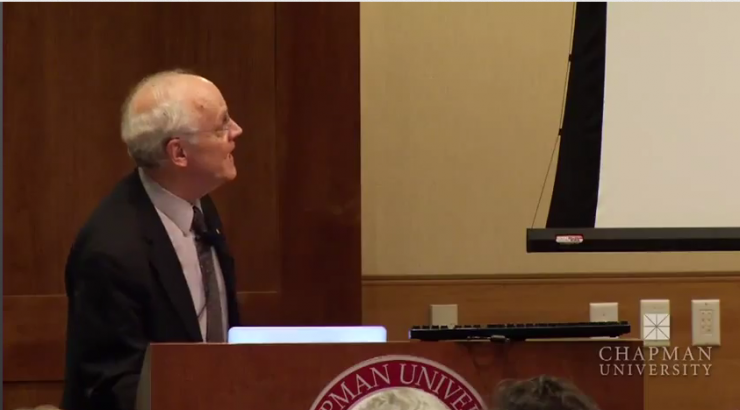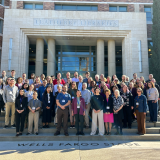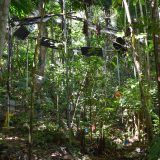
Nobel Physicist David Gross to Give Free Lecture at Chapman University
February 14, 2012
Dr. David Gross, a Nobel Prize-winning scientist whose groundbreaking work led the way to new thinking in the world of physics, will give a public talk at 7 p.m. Tuesday, Feb. 28, at Chapman University.
“We are thrilled that Professor Gross can join us at Chapman,” said Jeff Tollaksen, Ph.D., director of the Center for Quantum Studies at Chapman University. “Professor Gross needs no introduction, for several decades, he has been a world leader in high energy physics, particle physics and string theory. He received numerous prestigious prizes including the 2004 Nobel Prize in Physics (along with Frank Wilczek and David Politzer) for the discovery of asymptotic freedom in the theory of strong nuclear interactions. This fundamental discovery is another surprising example as to how our intuition may mislead us when exploring the nature of physical laws. In particular, the strong force becomes weaker at smaller distances.”
Dr. Gross’ talk, “The Frontiers of Fundamental Physics” will explore the principles that might unify all the forces of nature and help scientists understand the origin and history of the universe. He’ll also discuss what it might mean to have a final theory of fundamental physics and whether science is capable of discovering it.
Gross has been a central figure in the theoretical developments surrounding the emergence of quantum chromodynamics (QCD) as the accepted theory of the strong (nuclear) force. His discovery, with his student Frank Wilczek, of asymptotic freedom—the primary feature of non-Abelian gauge theories—led Gross and Wilczek to the formulation of QCD. Asymptotic freedom is a phenomenon where the nuclear force weakens at short distances, which explains why experiments at very high energy can be understood as if nuclear particles are made of non-interacting quarks. The flip side of asymptotic freedom is that the force between quarks grows stronger as one tries to separate them. This is the reason why the nucleus of an atom can never be broken into its quark constituents.
Dr. Gross is currently the director of the Kavli Institute for Theoretical Physics at the University of California, Santa Barbara.
The talk is hosted by the Schmid College of Science and Technology and will be held in Sandhu Conference Center. The event is free and refreshments will be served. For more information, please visit www.chapman.edu/schmid.

